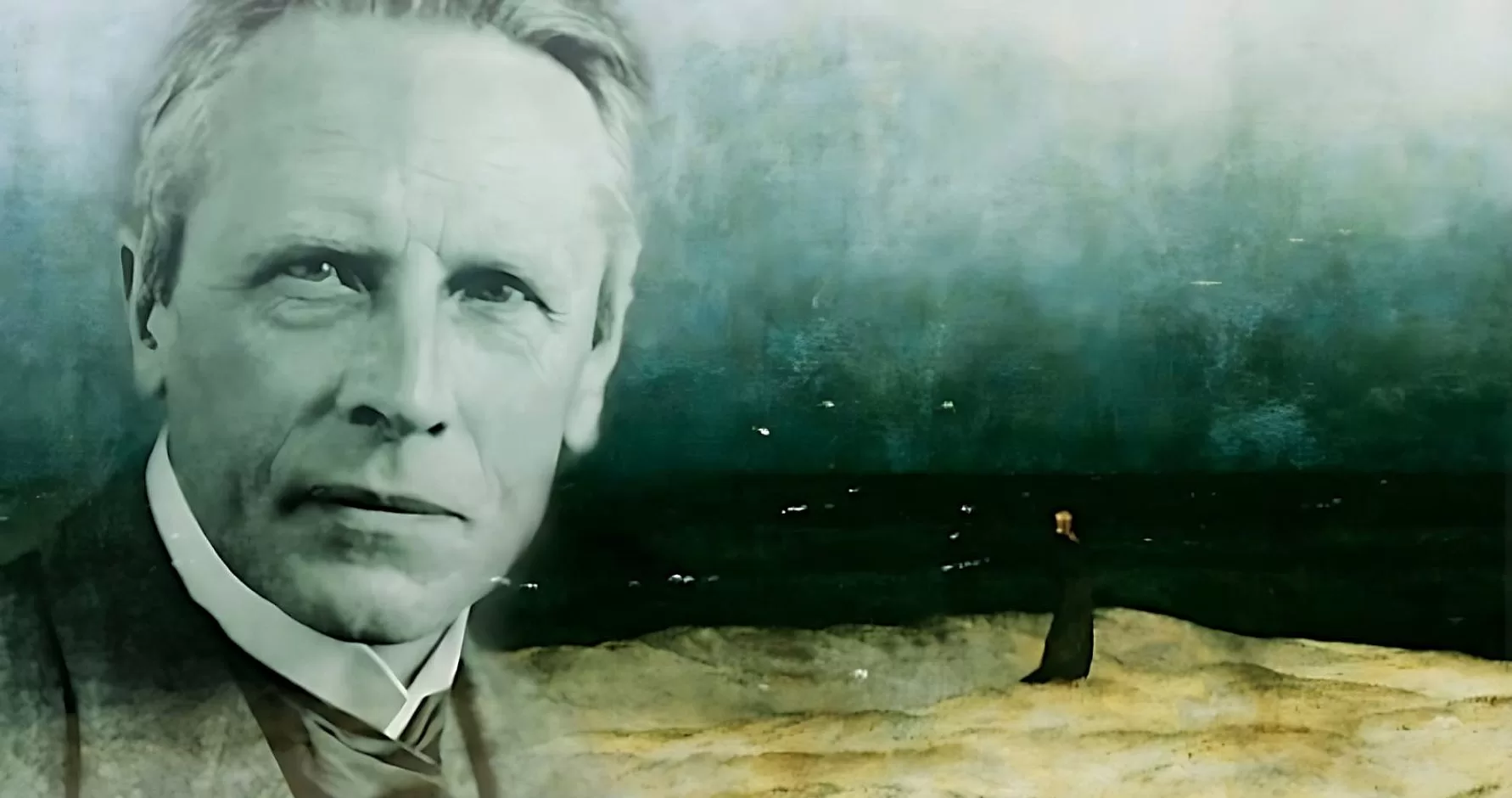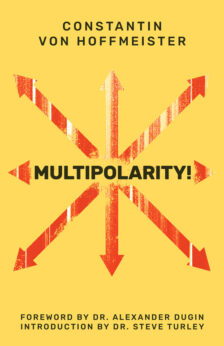Is it possible to imagine a reactionary school of psychology? Jung and Szondi moved in this direction, while Freud is a representative of the dark side of the enlightenment that manifested itself in the early 1900s. His thoughts are pessimistic, but hard to combine with optimistic liberalism and with perennial tradition.
Instead, we find a reactionary psychology when we turn to Ludwig Klages and his so-called characterology. The science of Klages was used, in a modified form, by the German Wehrmacht, but he also influenced feminism with the concept of logocentrism. One of the ironies of history is that the legacy of the anti-Semitic Klages during the second half of the twentieth century was mostly transmitted by German-Jewish thinkers such as Walter Benjamin and Wilhelm Reich. Benjamin was especially influenced by Klages, notably in his attempt to “read” architecture and in his studies of intoxication.
Characterology and Psychology
… the question is how far the individual peculiarity of the living entity must be made the basis for interpreting every manifestation of life, and what means we possess for an intellectual penetration of individuality as such.
– Klages on the task of characterology
Klages does not think highly of most psychology. It is based on misunderstandings; it has limited possibilities to describe personalities, and it is not a science of the soul. This means that modern psychology and older wisdom about the soul are strangers to each other. Klages does connect to such wisdom. Among other things, he is interested in the psychological insights of folk-language. People are “seeing red,” they get “high” or “carried away,” and become “blue.” Klages is interesting to read when he studies this area.
The flaws of psychology are caused by it being a child of the modern age, adopting modern values. Klages notes that a Renaissance psychologist would have studied a person’s capacity to act, a medieval psychologist her faith, and a classical psychologist her ability to be happy. But not the modern psychologist. Klages writes:
Such traits have lost their value for the modern psychologist; they are not even regarded at all, and industry has remained as the only virtue with its satellites, ambition and success – a complex, that is, which the Ancients would never have hesitated to relegate to the lowest of men, to pariahs and to slaves.
Character and Psychology
If his nature furnishes the material for the life-tune of the living man, then the material of character may be compared with the musical instrument which serves to translate the tune into sound.
– Klages on material and nature
The task of characterology is the study of personality. According to Klages, a personality can be described using the concepts of material, nature and structure. Klages is not an egalitarian. Our material consists of the talents and gifts we have been handed. We are born with different gifts. Our nature is connected to our driving forces and interests, the general direction of our lives. Structure is also called temperament. Klages studies Personal Capacity for Stimulation of Feelings, Personal Capacity for the Stimulation of Will and Personal Capacity for Expression.
Klages insists that his science may be used not only to describe individuals, but also to understand peoples, races, epochs, castes, buildings etc. This brings to mind Klages friend Benjamin, and his attempt to interpret buildings and cities. Klages writes that ” in principle all relics of culture admit of interpretation” and “originally every object of apprehension was taken to delimit and delineate a soul.”
Klages is often a rewarding thinker. He explains hysteria with the concept of inhibition. In the modern world, the connection of the soul to the body is often so repressed that many people appear to be hysterical. Phantasms, imitation, repetition, and representation abound. Some people never live, but represent most of their lives.
Ego, Soul, and Spirit
…the different species of character can all be traced back to different proportions in which Spirit and Soul are mixed.
– Klages
Klages is well known for his analysis of the conflict between Soul (Seele) and Spirit (Geist). Spirit intrudes between the poles of Body and Soul, such that history is an account of the growing domain of Spirit. Klages describes the steps in this process. The connection between Soul and Body is severed; the body is condemned as “sinful”; the Will to Power takes the Place of Soul, and the Machine Man is born. Sometimes the process was primarily economic; those who could not keep up were pushed aside. At other times, it has been very bloody (1789, the attack on the Templars, the Russian Revolution). The process started with the mythical fall, when man became aware of his mortality and the Ego was born.
According to Klages, Ego is a combination of Soul and Spirit, “a chemical combination having for elements the universal spirit and an eternally particular soul.” Those with a strong Soul experience the world as a series of images. When Spirit grows too strong, they are replaced by things (“things are Egos projected into the World”), things to control and manipulate.
Klages mentions four personality types, according to the combinations of Soul and Spirit. Ecstasy and intoxication (Benjamin’s Rausch) have important roles. During ecstasy, some people can re-experience the union of Body and Soul. Klages also describes a personality type where Soul is strong and Spirit a servant. He describes intuitive and speculative types (the romantics used the terms night- and day-consciousness). Klages focuses on the night, on dreams and intuition.
Klages as Conservative
According to Klages, the modern world is sick, but he is not a typical conservative. He sees Will to Power, as well as the restlessness of capitalism and modern science, as an expression of Spirit. Klages is no friend of Christianity either. Instead he views Life and the ability to experience it as the essential. Related to Soul are such things as love of nature, the home, the motherland, animals, plants, memories, ancestors and the Cosmos.
Klages is opposed to most of what modern liberals appreciate. He is no friend of the “Enlightenment,” of 1789, “progress” or “equality.” He is no feminist, but according to Klages women have historically been closer to Life and men to Spirit. He writes that the intelligence of women is different rather than inferior.
Klages and Postmodernism
… the symbol has gone beyond that which it symbolized and thought, operating by symbols, has taken the place of thought operating by units of meaning, or even by concepts. But this is the essence of formalism.
– Klages
In many ways Klages is an early postmodernist, reminding us of Baudrillard. He talks about the growth of formalization, especially in finance and mathematics. Symbols swallow facts in the same way that money replaces value. Combined with his theory of hysteria and phantasm, this is a valuable key to understanding the modern world. All in all, there is much of value in Klages and his characterology, especially for the reactionary reader.








[…] Quelle: https://arktos.com/2023/03/14/the-characterology-of-ludwig-klages/ […]